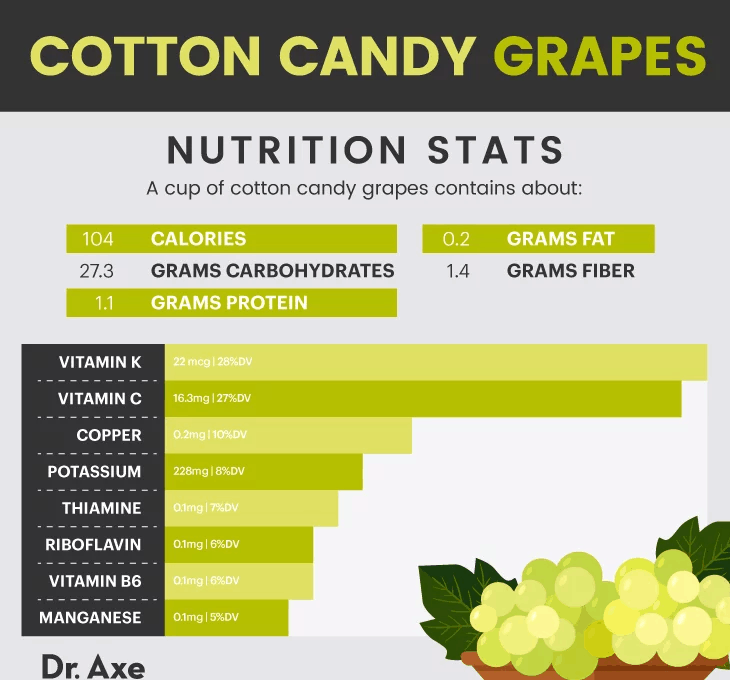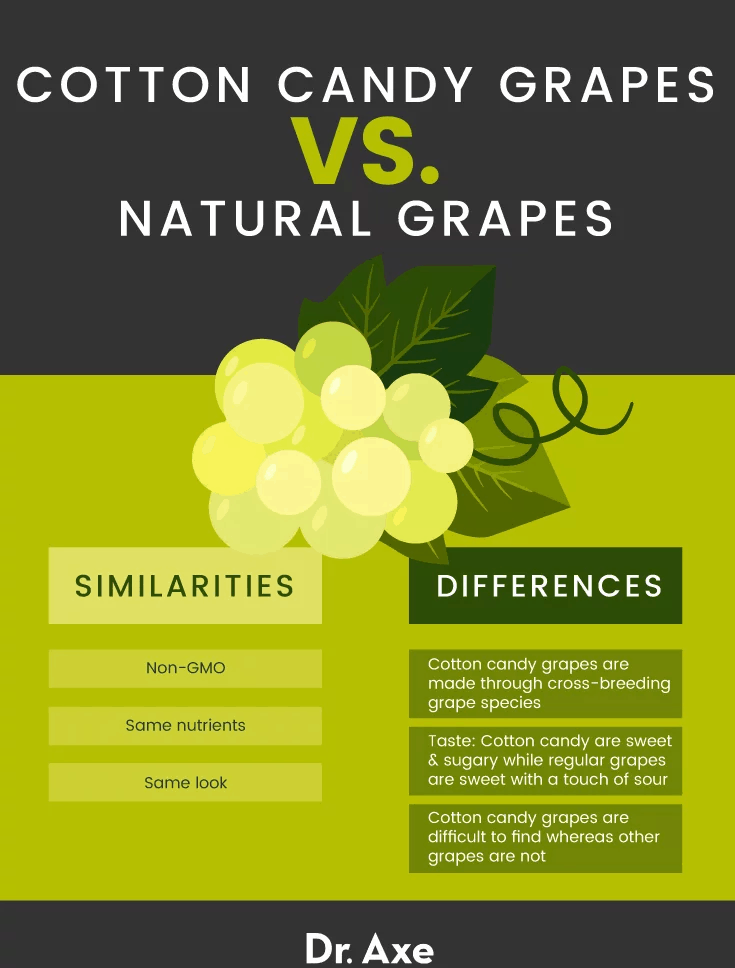This Dr. Axe content is medically reviewed or fact checked to ensure factually accurate information.
With strict editorial sourcing guidelines, we only link to academic research institutions, reputable media sites and, when research is available, medically peer-reviewed studies. Note that the numbers in parentheses (1, 2, etc.) are clickable links to these studies.
The information in our articles is NOT intended to replace a one-on-one relationship with a qualified health care professional and is not intended as medical advice.
This article is based on scientific evidence, written by experts and fact checked by our trained editorial staff. Note that the numbers in parentheses (1, 2, etc.) are clickable links to medically peer-reviewed studies.
Our team includes licensed nutritionists and dietitians, certified health education specialists, as well as certified strength and conditioning specialists, personal trainers and corrective exercise specialists. Our team aims to be not only thorough with its research, but also objective and unbiased.
The information in our articles is NOT intended to replace a one-on-one relationship with a qualified health care professional and is not intended as medical advice.
What Are Cotton Candy Grapes? 6 Benefits of This Unique Fruit
August 9, 2018

They may sound like they belong in some kind of circus or science lab rather than on your plate, but cotton candy grapes are all-natural, super nutritious and jam-packed with flavor.
These tasty grapes boast all the health benefits and nutrients of regular grapes but with a twist: Each bite tastes just like the soft, sugary, hand-spun cotton candy you know and love — without the extra chemicals, sugar, calories and guilt you don’t.
Much like normal grapes, cotton candy grapes come with a long list of health benefits. They can keep your blood sugar stable, provide a concentrated dose of antioxidants, relieve inflammation, boost brain function, and even fight off cancer cells and bacteria. Plus, they’re low in calories and offer a wide array of nutrients that are essential to your health.
At this point, you’re probably dying to know how you can get your hands on these, and you may be wondering “where can I buy cotton candy grapes?” Keep on reading for everything you need to know about these delicious grapes, from where you can find them to how they can benefit your health.
What Are Cotton Candy Grapes?
Cotton candy grapes are an all-natural variety of grapes that have been bred to taste just like cotton candy. They look just like normal grapes; they’re green, plump and juicy, plus totally seedless. The grape is actually a hybrid of two kinds of grapes: a type of Concord grape, similar to the ones used in many jellies and juices, and Vitis vinifera, the common grape vine.
For this reason, cotton candy grapes share the same nutritional properties as regular grapes and boast the same impressive benefits to health, such as improved heart health, better brain function and reduced inflammation.
However, the real reason that people flock to grocery stores to get their hands on these grapes is their intense flavor. It’s often described as an exact match for the sweet, spun cotton candy you might get at carnivals and fairs but without the added sugar or extra calories.
These grapes can be a bit tricky to find as they are available for a narrow window of time once a year and are produced by just one company. However, they can be found in many major retailers and can be an excellent way to pack some added nutrients into your diet while still satisfying your sweet tooth.
Benefits
1. Regulate Blood Sugar
Grapes have a low glycemic index, which means they won’t spike your blood sugar in the same way as other foods with a high glycemic index might. Not only that, but grapes have been shown to offer some especially impressive health benefits when it comes to keeping your blood sugar under control.
Studies show that grapes contain many important compounds called polyphenols that can reduce blood sugar levels and improve the function of the cells responsible for secreting insulin. Insulin is the hormone that transports sugar from the blood to the cells where it can be used as fuel, so increasing insulin levels can help promote normal blood sugar. (1)
Each serving of grapes also contains an added dose of fiber, which slows the absorption of sugar in the bloodstream, helping keep blood sugar steady.
For best results, pair your cotton candy grapes with a diet rich in low glycemic fruits, vegetables and other high-fiber foods along with regular exercise to help effectively manage your blood sugar levels.
2. Packed with Antioxidants
Antioxidants are compounds that fight off harmful free radicals and prevent damage to cells. The buildup of free radicals has been shown to contribute to several types of chronic disease, such as cancer, coronary heart disease and diabetes. (2)
Cotton candy grapes, like regular grapes, are loaded with beneficial antioxidants that can neutralize these dangerous compounds and help promote overall health. In particular, grapes contain several phytochemicals with potent antioxidant properties, including phenolic acids, stilbenes, anthocyanins and proanthocyanins. (3)
To get the most nutritional bang for your buck, consume grapes along with other high antioxidant foods like berries, dark chocolate, pecans and artichokes.
3. Alleviate Inflammation
Inflammation can be a healthy response triggered by the immune system in response to injury or illness. However, chronic inflammation may contribute to many types of chronic disease and autoimmune conditions, such as rheumatoid arthritis or lupus. (4)
Thanks to their high content of antioxidants, eating plenty of cotton candy grapes could help reduce inflammation in the body. A 2012 study published in Nutrients showed that eating grapes increased levels of anti-inflammatory markers in men with metabolic syndrome. (5)
In another study from Brazil, giving grape powder to patients on hemodialysis was found to increase levels of glutathione peroxidase, a type of enzyme with anti-inflammatory properties that protects cells from damage. Grape powder also prevented increases in inflammatory markers compared to a control group. (6)
In addition to eating plenty of grapes, following an anti-inflammatory diet and eating lots of anti-inflammatory foods can also help ward off inflammation.

4. Boost Brain Function
Grapes are bursting with flavonoids, beneficial compounds that can help keep your brain working efficiently and reduce the risk of neurodegenerative disease. Anthocyanins, in particular, can help by preventing inflammation in the brain and reducing oxidative stress caused by free radical formation.
A study out of the University of Cincinnati Academic Health Center published in the British Journal of Nutrition noted that supplementing with Concord grape juice for 12 weeks was found to improve memory in older adults with MCI, or mild cognitive impairment. (7)
Similarly, a 2009 review by the Jean Mayer Human Nutrition Research Center on Aging at Tufts University noted that consuming grape juice can improve the signaling of the neurons and prevent oxidative stress in the brain caused by aging. (8)
Other healthy brain foods include avocados, beets, blueberries, bone broth and coconut oil.
5. Fight Bacteria
Some studies have found that grapes contain antimicrobial properties that could help fight off the harmful bacteria that cause illness and disease.
A 2015 test-tube study, for example, found that grape peel extract was able to inhibit the growth of several strains of bacteria, including some types responsible for food poisoning, such as Salmonella typhimurium. (9)
Several other studies have produced similar findings, showing that grapes contain compounds that help kill off these dangerous strains of bacteria and even some types of fungi as well. (10, 11)
6. May Help Prevent Cancer
One of the most impressive health benefits of grapes is their ability to help protect against cancer. Grapes are literally loaded with compounds like polyphenols and antioxidants that can kill off and prevent the spread of cancer cells. Even raisins have been shown to fight cancer cells in some studies. (12)
A test-tube study out of Italy showed that grape extract reduced the growth of colon cancer cells and stopped them from spreading. (13)
Grapes also contain resveratrol, a type of natural polyphenol with powerful anti-cancer properties. In one animal study, treating mice with resveratrol significantly reduced tumor growth and also helped killed off breast cancer cells. (14)
However, keep in mind that most current research is limited to test-tube and animal studies. More trials on humans are needed to determine how grapes, and cotton candy grapes in particular, may affect cancer cells in humans.
Nutrition
Because cotton candy grapes are a hybrid of two common types of grapes, they share the same nutritional profile as regular grapes. They are low in calories, plus high in vitamin K and vitamin C along with many other important micronutrients.
One cup of cotton candy grapes contains approximately: (15)
- 104 calories
- 27.3 grams carbohydrates
- 1.1 grams protein
- 0.2 gram fat
- 1.4 grams fiber
- 22 micrograms vitamin K (28 percent DV)
- 16.3 milligrams vitamin C (27 percent DV)
- 0.2 milligram copper (10 percent DV)
- 288 milligrams potassium (8 percent DV)
- 0.1 milligram thiamine (7 percent DV)
- 0.1 milligram riboflavin (6 percent DV)
- 0.1 milligram vitamin B6 (6 percent DV)
- 0.1 milligram manganese (5 percent DV)

Cotton candy grapes also contain some iron, magnesium, phosphorus and vitamin A.
Cotton Candy Grapes vs. Regular Grapes
The distinct flavor of cotton candy grapes makes many people wonder: Are cotton candy grapes GMO? Interestingly enough, cotton candy grapes are not genetically modified. Instead, they are made by cross-breeding two kinds of grapes together to create a unique type of grape with a distinctly sweet flavor.
Because they are all-natural and made from two types of grapes, however, they share the same nutritional value and beneficial health properties as regular grapes. This means that there are the same amount of calories in grapes as cotton candy grapes as well as a comparable amount of nutrients like vitamin K, vitamin C and copper.
Cotton candy grapes even look just like regular grapes. The only real difference between the two is the taste; while grapes generally taste sweet with a touch of sour, cotton candy grapes tend to have a sweeter, more sugary flavor.

How to Use
By now, you’re probably asking yourself, “where can I buy cotton candy grapes?” Although not as common as regular grapes, cotton candy grapes are available in many major grocery stores nationwide. However, the simplest way to find where you can purchase cotton candy grapes is to simply type “cotton candy grapes near me” into your search engine to find a list of locations.
However, figuring out when are cotton candy grapes in season and timing it just right is even more challenging than finding them at your local grocery store. This is because they are available for a very narrow window of time during the cotton candy grapes season, which is in mid-August through mid-September.
Once you get your hands on these super sweet grapes, you can use them however you would use regular grapes. Add them to salads, pies, jams or desserts, or even just enjoy the cotton candy flavor all on its own for a healthy snack that will satisfy your sweet tooth.
If you’re looking for some new or unique ways to use these delicious grapes rather than simply enjoying them raw, have no fear. Here are a few cotton candy grape recipe ideas to get you started:
History
Grapes have been enjoyed throughout history, with grape cultivation dating all the way back to somewhere between the seventh and fourth millennia B.C. Originally found in the geographical area between the Black Sea and Iran, grapes were rapidly introduced by humans to areas like Central Europe and the Middle East.
Even winemaking can be traced back to ancient times, with some evidence showing that it may have begun as early as the seventh millennium B.C. (16)
Cotton candy grapes, on the other hand, are a much more recent innovation. Grapery, the company behind cotton the candy grape, has been growing grapes since 1996 in the Kern and Tulare counties of California.
By using cross-breeding techniques, Grapery was able to combine the flavors of the Concord grape with the common grape vine to create a completely new type of grape with a totally unique flavor. Through this method, Grapery has also begun cultivating several other types of hybrid grapes, such as gum drops, moon drops and flavor pops.
Risks and Side Effects
Conventional grapes are one of the main culprits of high pesticide residue and have been repeatedly been named one of the most problematic fruits when it comes to pesticides. In fact, they are included in the dirty dozen list of foods. For this reason, it’s usually recommended to opt for organic grapes whenever possible to avoid the harmful effects of pesticides.
Although cotton candy grapes are not organic, the company that produces them tests for pesticide residues before harvesting to make sure that they are safe to eat. Still, it is recommended that you wash your grapes thoroughly prior to eating to ensure proper food safety.
Additionally, some people may have an allergy to grapes. If you experience any adverse food allergy symptoms, such as hives, wheezing or swelling, after eating cotton candy grapes, discontinue use immediately and talk to your doctor.
Final Thoughts
- Cotton candy grapes are made by cross-breeding two kinds of grapes to create a new type of grape with a flavor similar to cotton candy.
- These grapes boast the same nutrient profile as regular grapes and are low in calories but pack in plenty of vitamin K, vitamin C and copper, as well as antioxidants.
- They also contain the same health benefits of grapes and may fight off cancer cells and bacteria, boost brain health, help control blood sugar levels and reduce inflammation.
- Cotton candy grapes can be found at many major retailers and grocery stores across the United States but are only available for one month out of the year.
- Packed with equal parts flavor and health benefits, these tasty grapes can be an excellent way to satisfy your sweet tooth while still adding some extra nutrients into your diet.




